How to export specification sheets or price lists in Plytix
In Plytix, you can export your products in CSV, XLSX, and PDF formats, directly from the Product Overview Page. In this article, you will learn how to export your products in PDF, choosing from Plytix’s standard layouts: specification sheet or price list.
Exporting a Specification Sheet
*Skip to any section in this article by clicking on the links above
Exporting in PDF
💡 This article focuses on exporting products in PDF. To learn about other export formatting options, check out this other article in our Help Center.
To export your products in PDF format:
- First select the products you want to export and click on the “Export” icon
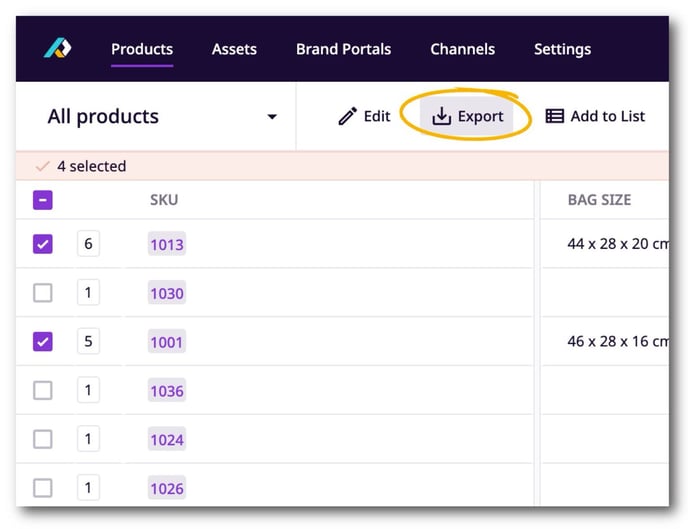
ℹ️ A timestamp is added to your file name upon export.
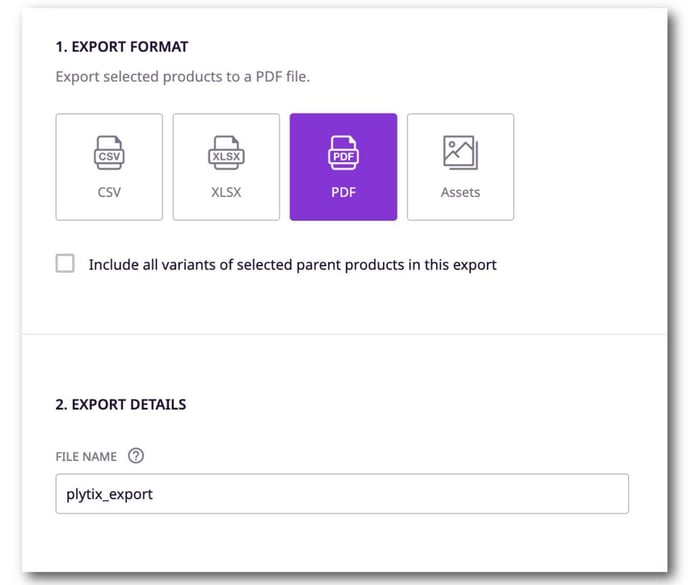
3. In the next panel, you will get to select between two formats for your PDF export:
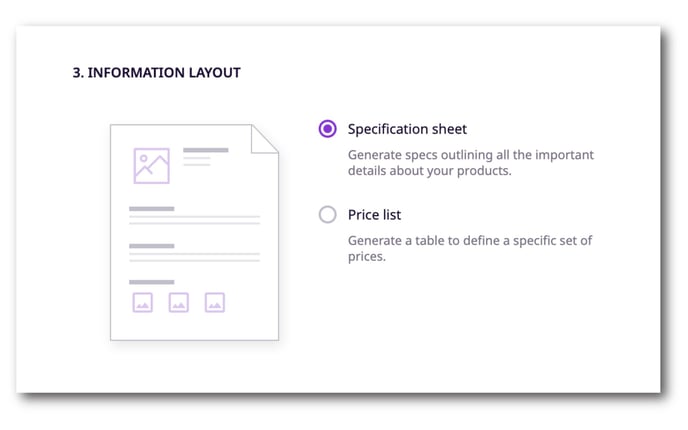
Configuring Branding Options
When exporting products as specification sheets or price lists, you can also add your company logo and company information in the "Branding Options" section.
To configure your Branding options:
1. After following the steps noted above, select between a specification sheet or price list.
2. Configure your PDF options (see the following sections for more information).
3. Then, configure your Branding Options. Here, you can add your logo and company information in text format.
💡 The recommended logo size for PDFs is 112x112 px
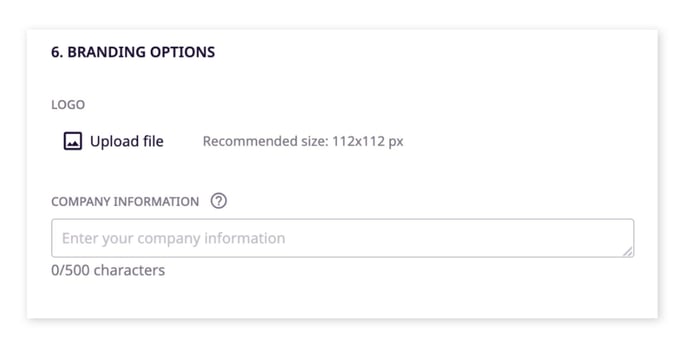
Exporting a Specification Sheet
Specification sheets (also known as product data sheets or technical sheets) are a great way to include all the important product information in a document to present it to customers or potential buyers. Specification sheets also help customers compare different products and get more details about specific product features they are interested in. In this option, your selected product information will be displayed individually for each product.
After selecting this format, you will choose your options for:
- The file orientation
- Number of columns
- Which attribute will be set as your product title in the file
- The product reference
- Your products’ main image
You’ll also be able to select whether you want one specification sheet file per product, or if you would like all products to be exported in a single PDF file.
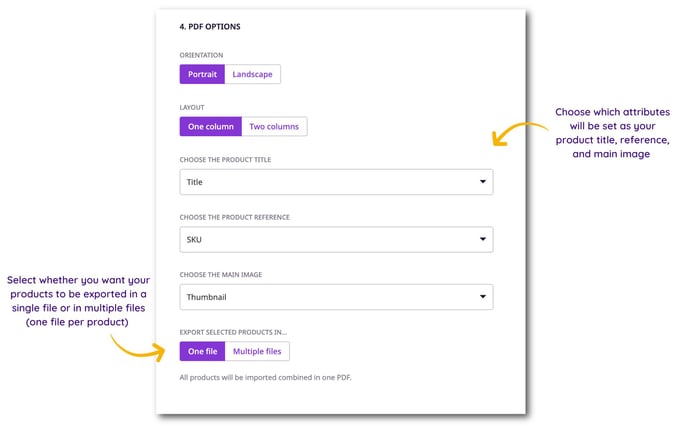
ℹ️ If you would like to export multiple files for a single export, the file names will follow this naming convention: filename_SKU_timestamp
Next, you will select the attributes you want to include in your specification sheet. Drag and drop your attributes to reorder them in the way you want them to be listed in your file.
ℹ️ You can add up to 100 attributes to your specification sheet
Finally, click on ‘Export’
The following is an example of a PDF export as a specification sheet:
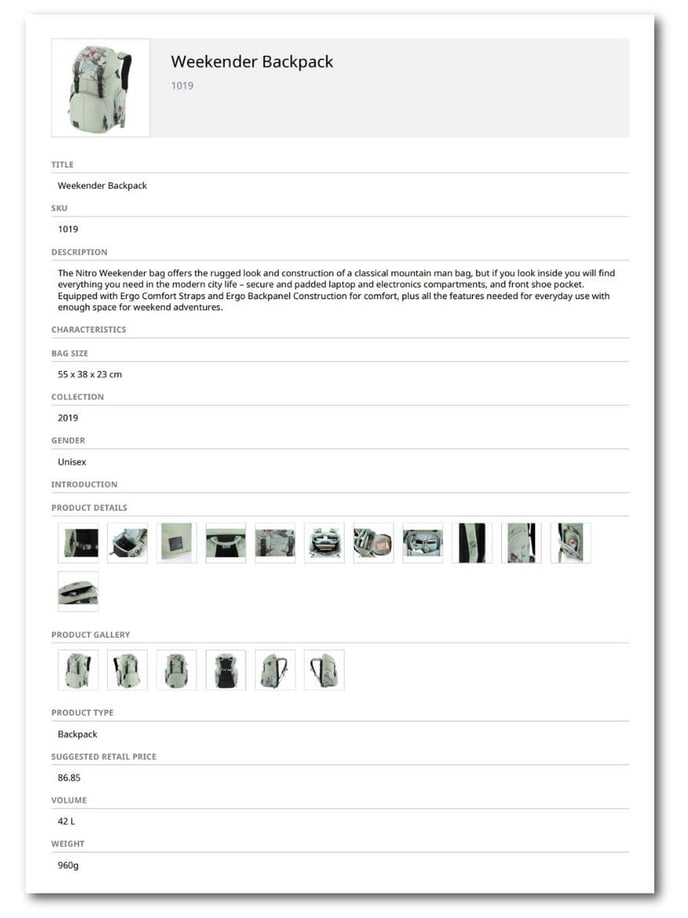
Exporting a Price List
Price lists are generally more concise than specification sheets. Practically speaking, you can select fewer attributes to export in this option. However, price lists work great to share specific and concise information about your products (like its title, main image, and price). The format of a price list is also different in that the information is organized in rows and columns (like a spreadsheet!) with one product per row – whereas specification sheets display information for each product individually across one or multiple pages.
After selecting this option, choose your document title. Then, select your preferred document orientation and click ‘Next.’
⚠️ The orientation type you choose will impact the number of attributes you can select in the next step. See below to view specific attribute numbers for each orientation type.
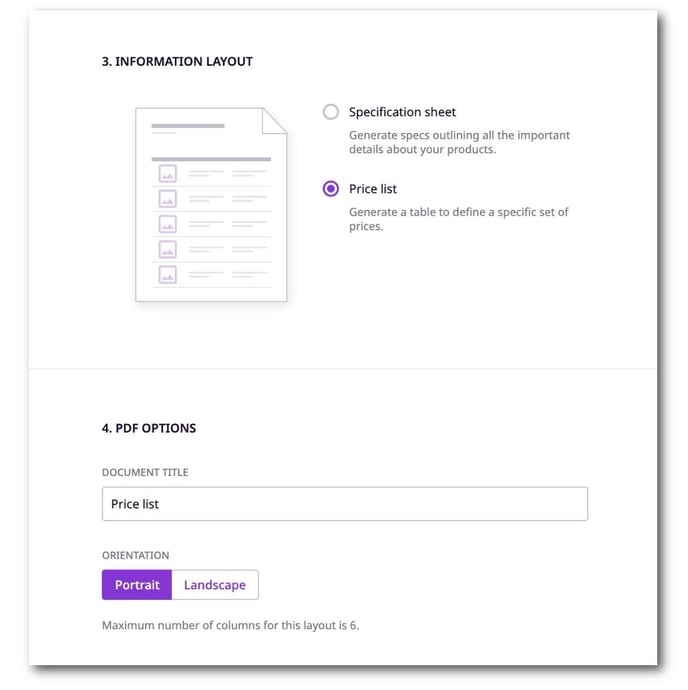
In the next tab, you will choose the attributes you want to include in your price list. Select the order in which you want them to appear by dragging and dropping them.
ℹ️ There is a limit to how many attributes you can export in a price list file. If you’re exporting in landscape mode, you can add up to 9 attributes. If you choose portrait mode, you can include up to 6 attributes.
Finally, click on ‘Export’
The following is an example of a PDF export as a price list:
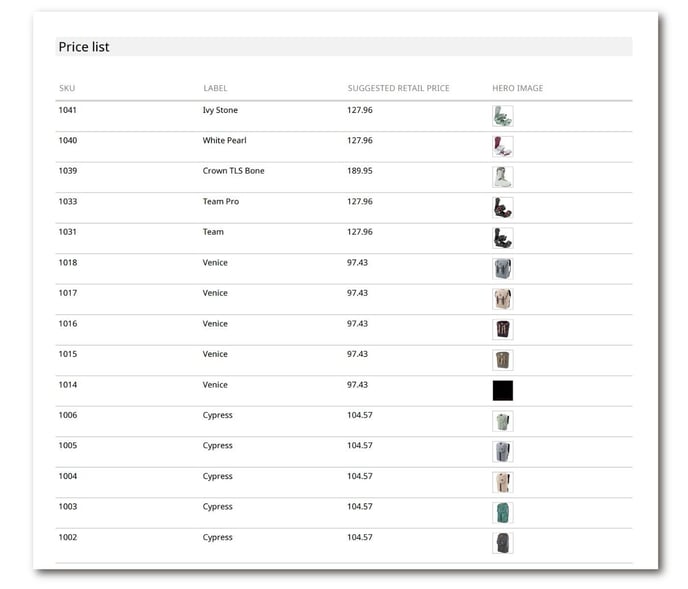
What's next?
- Learn how to define export settings for attributes
- Learn how to define export settings for media attributes
- Learn how to view export logs